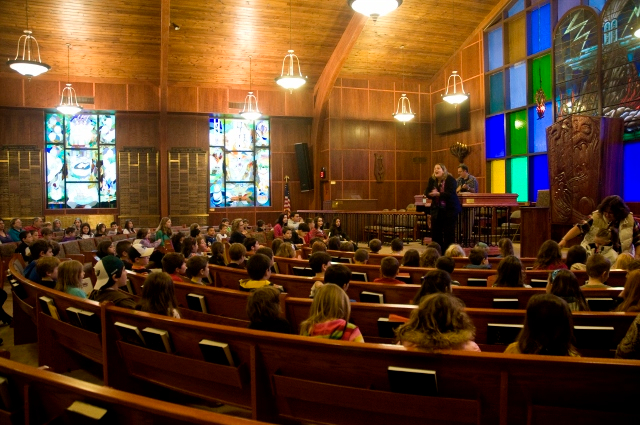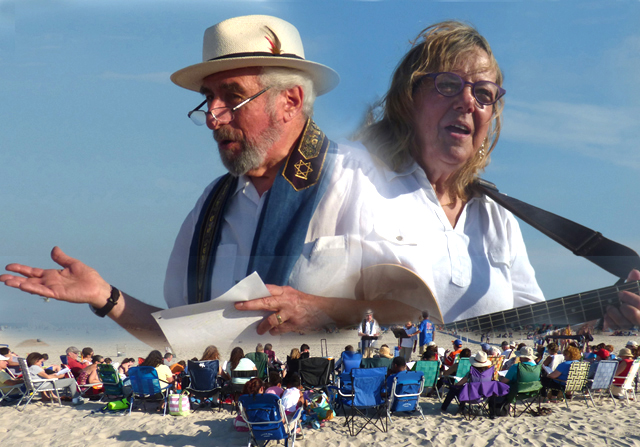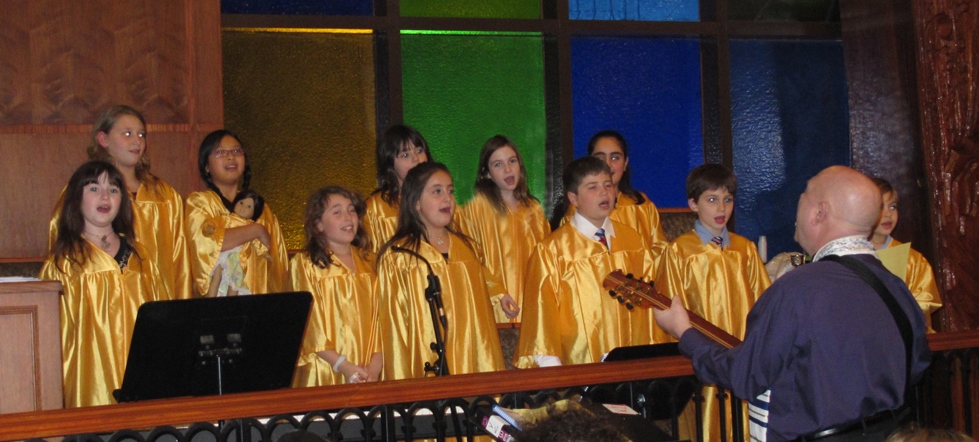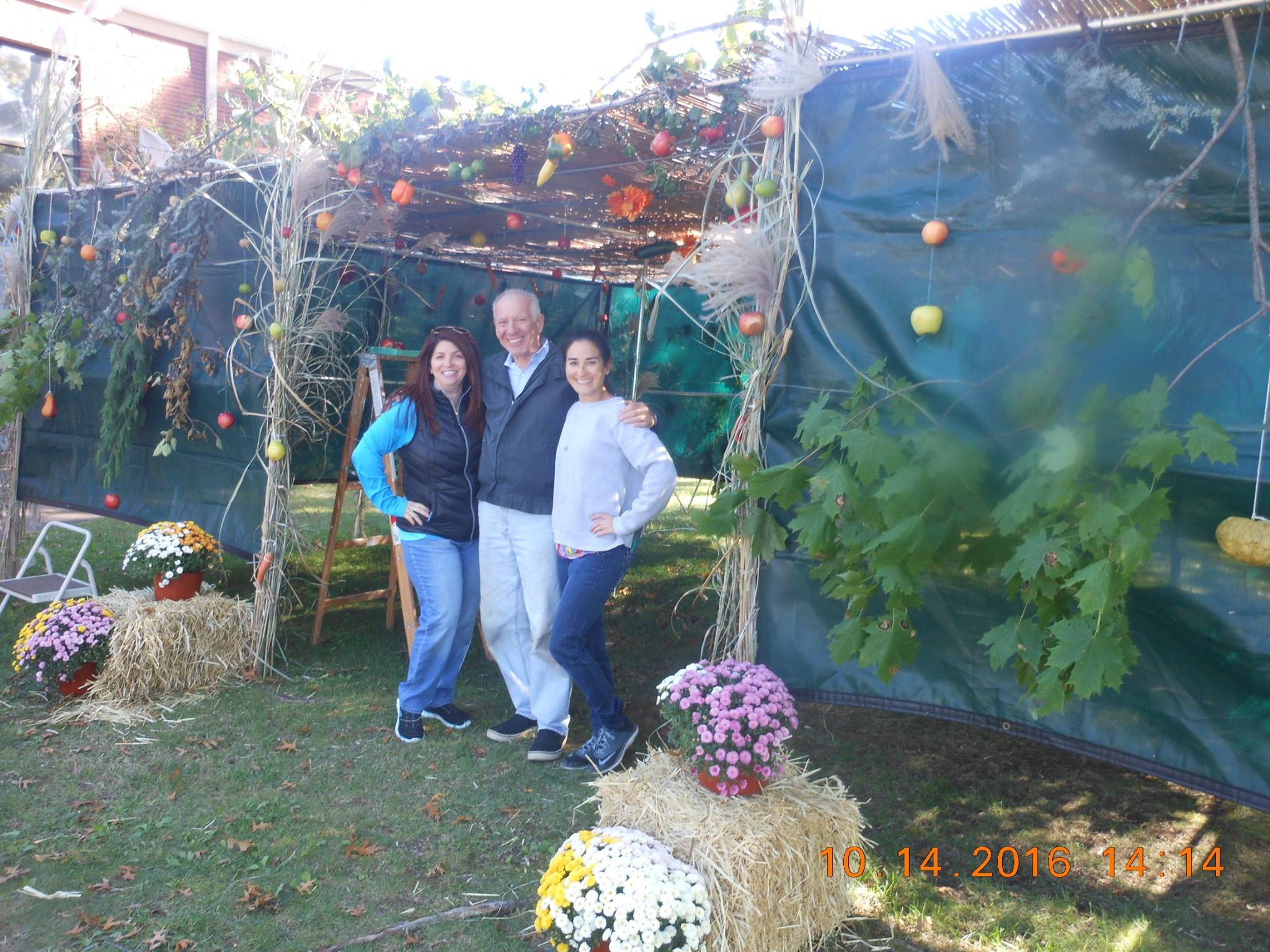|
|
|
Although circumcision has been practiced in different cultures for over three thousand years, in Judaism this act has taken on special significance and represents bringing a child into the divine covenant between God and the Jewish people. Descriptions of circumcisions can be found in the Bible. In Genesis 17:9-13, God instructs Abraham to circumcise male children on the eighth day throughout the generations. According to Jewish tradition, it is a parent’s obligation to circumcise a son and offer a threefold blessing for the child: a life enriched by Torah, the wedding canopy (chuppah), and good deeds. Today, a mohel or mohelet is routinely designated by parents to fulfill this custom. In some cases where this custom hasn’t been upheld in its derived intent, there are other types of berit mila ceremonies to bring a person into the covenant, which include the following:
All Reform mohalim/ot are licensed medical practitioners that have been certified by the Reform Movement after being trained by the Berit Mila Program of Reform Judaism in the history and the customs of this rite. |
Worship
Picnic Service
Friday, July 29, 2016
6:30 pm, BYO Picnic Dinner
7:30 pm, Picnic erev Shabbat Service
Outside on Temple Lawn
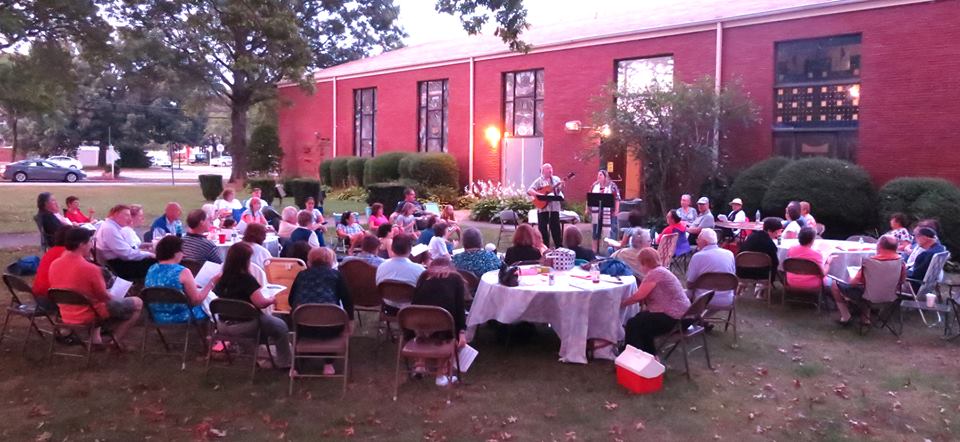
2013
Shabbat Torah Study
SATURDAY MORNING
Judy and Marc Herbert lead the Shabbat Torah Study group – a group of lay congregants who meet every Shabbat from 9:30 – 11:00 AM. The group is working its way through the entire Tanakh (Hebrew Bible), reading it in English. This long-standing, lay-led group meets to read, study, debate, and enjoy our holiest texts. They bring in a number of translations and commentaries to enhance their understanding and to get different perspectives. The group relates the stories and messages of the Bible to current events, usually giving way to spirited discussions. Absolutely no prior training is needed, just an interest in exploring the foundational text of the Jewish people. All religious viewpoints are welcome. All who are interested in joining the group, come on down.
Shabbat Service
SATURDAY MORNING
“Shabbat Morning Service,” 10:30 am
Though all are welcome at every single Shabbat morning service, some prefer a service with less formality and more congregant participation. Please join us for these special services, which are led by our clergy and include discussions, study, and learning. DATES TO BE ANNOUNCED
Shabbat
Shabbat brings every creature back to its roots which is the will of God. (Sefat Emet)
At Temple B’nai Torah, we celebrate the diverse needs and interests of our community. Though our members may vary in age, family structure, and schedules, we are all alike in our need for a day of rest, renewal, and rejuvenation.
All are welcome at each Shabbat service. Our clergy, leadership, and Ritual Committee have worked diligently to offer many Shabbat experiences for the TBT family, and we are sure that you’ll find something you like!
Please check out our calendar for the most up-to-date information.

Beach Service
July 14 & August 18, 2017
6:00 pm, Meet at Jones Beach Field 6
(services also offered at TBT at 7:30pm)
Beach service 2016
Beach Service
We are blessed at Temple B’nai Torah to be near the ocean. Wantagh, known as the “Gateway to Jones Beach,” affords us an opportunity to hold worship services on the beach. Each summer, we schedule two Erev Shabbat services to be held at Jones Beach State Park. The sun sets, the waves crash, and our voices rise together in prayer. It is truly one of the most spiritual moments of the year for many of our members. Congregants are encouraged to bring blankets, chairs, picnic dinners, friends and family. Dress is informal and comfortable. Rabbi leads a warm, inviting service that is appropriate and meaningful for all ages.
Family Shabbat
Friday night
1st Friday of the Month: “Family Shabbat,” 7:30 pm
A fun, inviting service for all! Designed to be most accessible to elementary school and middle school ages, this service often includes student participation, music by our Youth and Teen Choirs, storytelling, and more. Birthday Blessings are also a treasured part of this monthly service led by our clergy.
Chanukah
Chanukah (alternately spelled Hanukkah), meaning “dedication” in Hebrew, refers to the joyous eight-day celebration during which Jews commemorate the victory of the Maccabees over the armies of Syria in 165 B.C.E. and the subsequent liberation and “rededication” of the Temple in Jerusalem. The modern home celebration of Chanukah centers around the lighting of the chanukiyah, a special menorah for Chanukah; foods prepared in oil including latkes (potato pancakes) and sufganiyot (jelly donuts); and special songs and games.
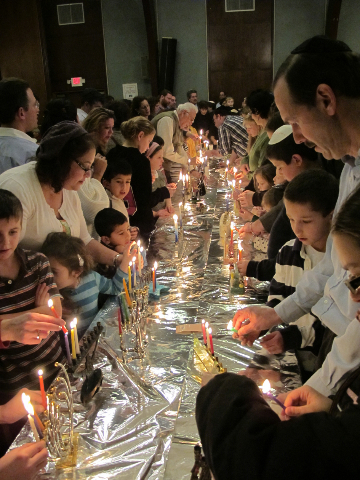
Sukkot
Sukkot
Sukkot, a Hebrew word meaning “booths” or “huts,” refers to the Jewish festival of giving thanks for the fall harvest. It also commemorates the 40 years of Jewish wandering in the desert after the giving of the Torah atop Mt. Sinai. Sukkot is celebrated five days after Yom Kippur on the 15th of Tishrei, and is marked by several distinct traditions. One, which takes the commandment to dwell in booths literally, is to erect a sukkah, a small, temporary booth or hut. Sukkot (in this case, the plural of sukkah) are commonly used during the seven-day festival for eating, entertaining and even for sleeping.
Sukkot also called Z’man Simchateinu (Season of Our Rejoicing), is the only festival associated with an explicit commandment to rejoice. A final name for Sukkot is Chag HaAsif, (Festival of the Ingathering), representing a time to give thanks for the bounty of the earth during the fall harvest.
TBT Sukkah 5777 – Built by BH,
Decorated by Robin Galardi, Les Richards, Julia Brite
with help from the Hebrew School youth


